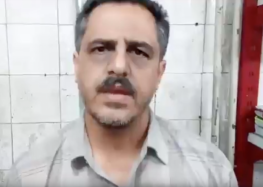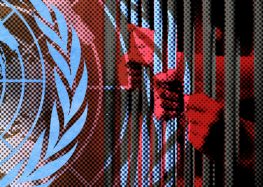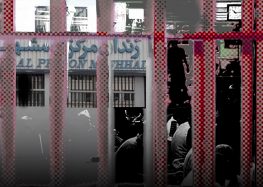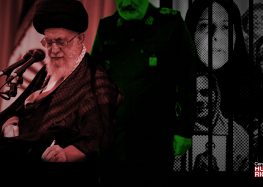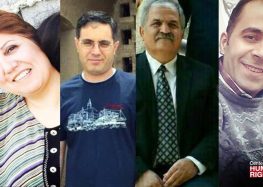Secret Executions: Findings Challenge Judiciary’s False Narrative
 Details of Death Penalty Procedure Affirm the Need for Moratorium
Details of Death Penalty Procedure Affirm the Need for Moratorium
101 Identities of Vakilabad’s Mass Executions Revealed
(3 January 2012) The International Campaign for Human Rights in Iran published the first public list of 101 victims of secret group executions in Vakilabad Prison today. The Campaign called on the Iranian Parliament and judiciary to immediately institute a moratorium on executions and to move swiftly to abolish the death penalty.
“Unfortunately, many of these executions happen behind closed doors, without the involvement of lawyers or awareness of the victim’s family, and without access to a fair trial,” said Nobel Peace Prize Laureate Shirin Ebadi.
Ebadi added that Iran’s abuse of the death penalty has not been successful in fighting crime, saying:
“The Iranian judiciary and government know that the death penalty is not a suitable solution for fighting crime, particularly drug-related crimes. The basic question is this: why does the Iranian government use this type of punishment with such enthusiasm? The issue is that these executions only create fear and intimidation and serve only a political purpose. All of the statistics show that while the number of executions have increased the number of drug-related crimes have not decreased at all.”
On 21 December 2011, Ayatollah Sadegh Amoli Larijani, head of the judiciary, said “I categorically deny any secret mass executions…All executions are announced to my office…if anyone has information about executions anywhere that have been secret and without knowledge of families, let us know and we will investigate it.”
The list published today by the Campaign reveals the names of 101 individuals who have reportedly been executed without official acknowledgement, between 9 June 2010 and 20 December 2010, in Vakilabad Prison. This list, accompanied by a briefing paper, is the first time any identities of those secretly executed at Vakilabad have been made public.
Local activists obtained this information under serious risk to their personal safety in order to lend more credence to past reports.
“This statistic, in my opinion, and the opinion of other contributors to this report, is the baseline figure,” said renowned Iranian human rights activist Asieh Amini, who contributed to this report.
“To me, the issue of executions is not a matter simply for one individual, one city, or one community. Nor is it an issue simply between the victims and their families. For us, executions is a national issue, and must be addressed widely … When the major human rights news is about Iran’s many unjust, secret, mass executions, it is the responsibility of every Iranian to ask of the judiciary, ‘why?,’ and to try to end this national shame,” she added.
Iran is the world’s leading per-capita executor, following only China in absolute numbers. In 2011 so far, Iran has put to death over 600 individuals, at least 161 of which were in secret.
The Campaign has documented 471 secret executions in Mashhad and other cities since January 2010. The actual numbers are likely much higher. The Campaign received this information from local sources and activists with access to government data.
Executions are considered secret when they are not publicly reported by authorities and the victim’s family and lawyers have no prior knowledge that the sentence is set to be carried out.
According to local activists the inmates secretly put to death in Vakilabad were unaware that they were scheduled for execution until just before its implementation. Prison authorities informed the individuals only hours before their execution that they had to write their wills and perform ritual cleansing in preparation for death.
Prison authorities hung the inmates around dusk in an open-air hallway leading to the prison’s visiting room. Contributing to the shroud of secrecy surrounding the executions, the phones within Vakilabad were disconnected hours before, preventing calls in and out of the prison.
The bureaucratic efficiency of these hangings is exemplified by the fact that the medical examiner’s office issued many of the corresponding death certificates up to a day before the execution. Death certificates listed the cause of death as ghatl-e ghanooni or “legal murder.”
The actual executions were witnessed by representatives of several government agencies including the Mashhad Prosecutor’s office, local and district police, the Judiciary, the Medical Examiner’s office, as well as Vakilabad’s warden and intelligence chief.
Most of these executions are believed to have been carried out in the absence of international safeguards and fair trial standards.
Sources in Mashhad described how many of these convictions came from rushed and unjust trials, marked by unfair and flawed judicial processes. On 18 August 2011, the nephew of one of the executed prisoners told the Campaign: “It took only two months from the time of the arrest to the implementation of [my] uncle’s sentence while he was not granted the right to a fair trial … the truth or inaccuracy of his [defense] was never even investigated.”
Some of the inmates executed in Vakilabad were foreign nationals, including citizens of Afghanistan, Ghana, and Nigeria, and apparently did not have access to their diplomatic representatives. The large majority of those executed are believed to be from economically disadvantaged backgrounds.
Moreover, the vast majority of secret executions have reportedly been for drug crimes, for which capital punishment is not permissible under international law.
When pressed, Iranian officials have publicly admitted that some of these secret executions had taken place. According to UN General Secretary Ban Ki-Moon’s March 2011 report on human rights in Iran, the Iranian government confirmed a 60-person group execution in Mashad.
The secret killing spree has elicited international concern and condemnation and was cited as a rights violation in the October 2011 interim report by the Special Rapporteur on the situation of human rights in Iran.
Article 6(2) of the International Covenant on Civil and Political Rights (ICCPR), which Iran ratified in 1975, mandates that “[i]n countries which have not abolished the death penalty, sentence of death may be imposed only for the most serious crimes.”
The UN Human Rights Committee, the leading international authority on the ICCPR, and the UN Special Rapporteur on extrajudicial, summary or arbitrary executions, have made clear that drug offences do not meet the “most serious crimes” standard. Therefore, Iran’s use of the death penalty for these offenses violates the government’s international obligations.
Article 14 of the ICCPR guarantees all criminal suspects the right to a fair trial. Moreover, the UN Safeguards Guaranteeing Protection of the Rights of those Facing the Death Penalty makes clear that “[c]apital punishment may only be carried out pursuant to a final judgement rendered by a competent court after legal process which gives all possible safeguards to ensure a fair trial,” and that defendants must have access to multiple appeals.
Worldwide, 96 countries, including Brazil, Turkey, and Rwanda, have formally abolished the death penalty, with another 34 countries, such as Kenya, Morocco, and Russia, ending its use in practice.
“Iran has shown an inability to use the death penalty in a legal and accountable manner, “ said Hadi Ghaemi, the Campaign’s spokesperson. “With skyrocketing execution numbers marred by unfair trials and opaque judicial proceedings, it’s time for Iran to institute a moratorium and join the growing trend towards abolition.”


